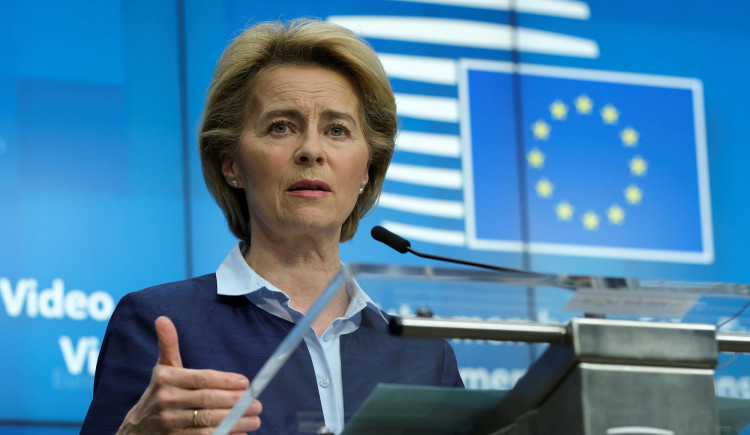The European Union vowed to retaliate against President Donald Trump's newly announced tariffs on steel and aluminum, escalating trade tensions between the U.S. and its allies. European Commission President Ursula von der Leyen condemned the measures, calling them "unjustified" and warning they would trigger "firm and proportionate countermeasures."
The tariffs, which impose a 25% duty on steel and aluminum imports, eliminate previous exemptions for several U.S. trading partners, including Canada, Mexico, Brazil, and South Korea. The White House confirmed the measures would take effect on March 4, impacting millions of tons of metal imports that previously entered the U.S. duty-free under negotiated agreements.
"Unjustified tariffs on the EU will not go unanswered," von der Leyen said in a statement Monday. "The EU will act to safeguard its economic interests. We will protect our workers, businesses, and consumers."
The move has sparked a global backlash, with Canadian Prime Minister Justin Trudeau calling the tariffs "unacceptable" and warning of potential retaliation. "Canadians will stand up strongly and firmly if we need to," Trudeau said during remarks at the Paris artificial intelligence summit.
Trump defended the tariffs, describing them as a way to level the playing field for U.S. manufacturers. "It's 25% without exceptions or exemptions," Trump told reporters. "That's all countries, no matter where it comes from, all countries."
The president also signaled additional trade measures, stating he would announce reciprocal tariffs on countries that impose duties on U.S. goods in the coming days. Trump suggested he was also considering new tariffs on cars, semiconductors, and pharmaceuticals.
EU trade chief Maros Sefcovic described the tariffs as a "lose-lose scenario," warning that they would harm both American consumers and European exporters. "By imposing tariffs, the U.S. will be taxing its own citizens, raising costs for its own businesses, and fueling inflation," Sefcovic said in a speech before the European Parliament.
The EU has yet to specify its retaliatory measures but could reinstate tariffs on U.S. products such as bourbon, motorcycles, and orange juice-sanctions that were initially imposed in 2018 but later suspended under a trade truce between the EU and former President Joe Biden. Those suspensions are set to expire at the end of March, creating a potential flashpoint for further trade disputes.
The announcement roiled global markets, with U.S. steel and aluminum stocks surging while European and Asian steelmakers saw sharp declines. The tariffs also fueled a rush for safe-haven assets, pushing gold prices to a record high of $2,942.70 per ounce in Asian trading before settling slightly lower at $2,909.49.
In addition to the tariffs, Trump unveiled a new North American standard requiring steel imports to be "melted and poured" and aluminum to be "smelted and cast" within the region. The rule is aimed at preventing Chinese and Russian metal from entering the U.S. through third-party countries.
While China exports only a small amount of steel directly to the U.S., Washington has long accused Beijing of distorting global markets by subsidizing production, forcing other nations to offload surplus steel and aluminum onto the international market. Trump's administration argues that such practices ultimately lead to transshipment schemes where Chinese steel is rerouted through intermediary nations to avoid tariffs.
The impact on Canada is expected to be significant. The country, which supplies nearly 80% of the U.S.'s primary aluminum imports, will now face new cost barriers when exporting to American buyers. Canadian officials have indicated they may pursue retaliatory measures but have not yet disclosed specifics.
Von der Leyen is scheduled to meet with U.S. Vice President JD Vance on Tuesday, where trade tensions are expected to be a focal point of discussion.






